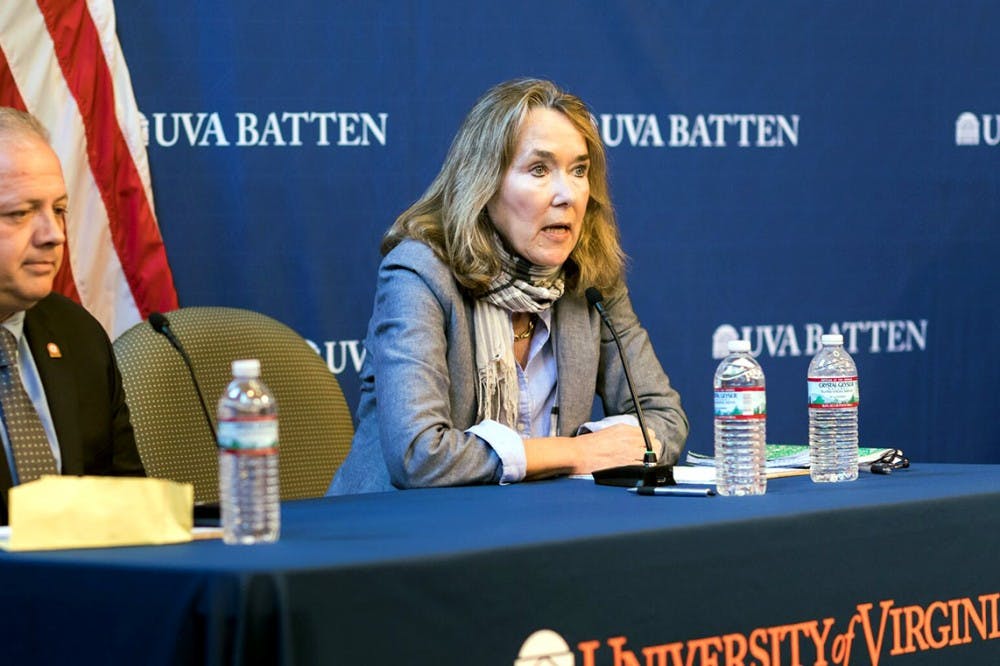As the results rolled in from the 2018 midterm election, Democrats across the nation watched both in fear and hope as the outcomes appeared questionable for most of the night. The blue wave many hoped would seize the nation suffered some major losses, such as Beto O’Rourke losing to Ted Cruz in Texas, Stacey Abrams’ defeat in the Georgia governor’s race and Leslie Cockburn losing here in Virginia’s Fifth Congressional District. However, those losses cannot be compared to the monumental progress Democrats made throughout the country on a much broader scale. This election spoke volumes regarding the rejection of the current state of affairs, and Democratic voters let their presence and persistence be known across the nation as they made history and simultaneously set themselves up for much larger successes in 2020.
For instance, Democratic voters demonstrated the importance of grassroots organizations and campaigns as they mobilized across the country. This can be seen in Virginia’s Fifth District, where midterm voter turnout increased drastically, almost reaching that of presidential election years. In this midterm election, Virginia’s Fifth District had a total voter turnout of 311,000, with 146,000 citizens voting Democratic, which is a substantial increase from the 2014 midterm election turnout of 205,000, in which a mere 73,000 people voted Democratic. This increase in voter turnout can in part be contributed to the dedicated participants of grassroots organizations that catalyzed a movement throughout the district, showing that elections truly are won from the bottom up. So while Cockburn may not have won the race, those that rallied behind her and the Democratic Party spread the blue wave beyond precedent, allowing hope to spread in this terribly gerrymandered and historically Republican district.
Additionally, this election displayed changes taking place behind the scenes, as small winning margins elicit Democratic hope for future elections. This is seen in the narrow defeat in Texas, where Cruz beat out Democratic nominee O’Rourke in what has been the closest statewide election in 40 years. Winning by less than three percentage points, the Republican Party fought an uphill battle, and the intensity of this race has evoked confidence among many Democrats as they hope to strengthen the gains and continue to shift the electorate. Leaving Republicans nervous about what is to come, it is clear that momentum in Texas has shifted along with the rest of the nation, providing a foundation to build on as Democrats continue to organize. This can also be seen in the Georgia gubernatorial race, in which Abrams has lost to Republican candidate Brian Kemp by just over one percentage point. This is monumental, especially considering that in order to win a Georgia governor’s election, one must obtain more than 50 percent of the votes — making this election not only close, but also up for debate, as Abrams has continued to search for votes. In the meantime, however, Kemp has claimed victory.
Furthermore, voter suppression has become readily apparent across the nation, where many states are accused of making it harder for people to vote through newly implemented voter ID laws, faulty equipment, long lines and issues with registration. The most prominent example of this can be seen in the state of Georgia, as many reports suggest that Georgia precincts in predominantly black neighborhoods intentionally left machines broken for extended periods of time and did not set up enough polling stations. This becomes a larger issue considering that Kemp was Georgia’s Secretary of State and oversaw his own election. Not to mention, he recently placed tens of thousands of voter registrations on hold, and he claimed victory with extremely narrow margins.
The nation has expressed outrage regarding the suppression of voters in said instances this election year, much as they have for many years. This is a perfect storm for Democrats to continue organizing over the next two years, as the impending 2020 election remains the center of discussion. However, unlike years before, it should be followed through on. It is of utmost importance that Democrats take advantage of their newly gained power in the House and continue pressuring states and lawmakers to ensure issues such as these do not occur in future elections.
So while this midterm election brought both triumph and defeat to the blue wave that Democrats were hoping to spread across the nation, even some of the losses appear to be monumental wins for the party moving forward. Democrats have shown that with the help of grassroots organizations, strong campaigning and the power of the people, change is possible. Because this election was the start of something much larger in the electorate, it is up to the voters to continue this force and push the blue wave in the elections to come. To do this, emphasis should be placed on grassroots organizations and campaigning, as this election has demonstrated the true power behind it. Additionally, voters should remember that every vote does count, as the narrow defeats of O’Rourke and Abrams exemplify. Thus, it is both possible and plausible to continue to spread the blue wave with the growing momentum.
Hailey Yowell is a Viewpoint writer for The Cavalier Daily. She can be reached at opinion@cavalierdaily.com.





